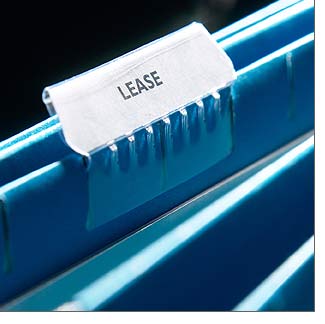10 Steps to Planning an Office Relocation

Planning a successful office relocation requires a lot of organisation and forward planning, and with so much to think about moving office can seem like a time-consuming and complex task. This Step-by-Step Guide breaks down the office relocation process into 10 basic steps so you know exactly what to do and where to start.
Instructions
-
1
Start Early
Planning an office relocation requires painstaking co-ordination, so early planning and preparation is the key to ensure everything goes smoothly and dovetails appropriately. Many companies underestimate the amount of time and effort an office relocation takes - and end up making costly mistakes because they have made decisions in haste or not thought everything through properly.
Best practice suggest you should start planning your office relocation at least 9-18 months in advance of your current office lease expiry- depending on the size of your business and the requirements of your new office space.

-
2
Have a Plan
Every office move needs a plan and a clear direction. Within this plan you should include your reasons behind the move, what you require from your new office space, how you intend to exercise notice on your existing property and also how you plan to communicate the office move to your staff, clients and key stakeholders within your business.

-
3
Be Clear on your Office Brief & Location
Finding a new home for your business is an exciting prospect, but it's also time-consuming. If you are clear about your space and operational requirements, it can make all the difference and will allow your Property Agent to narrow down the right options for you to view. Think about how many staff you may have in 2-3 years time. What is your budget? Will you be attracting the right kind of clients in the location you have identified? Considering all these issues at an early stage will help you secure the right property for your business.

-
4
Set a Budget
Moving offices is going to cost you, and it could turn out to be more expensive if you don't have a clear and realistic budget from the outset. Use the Moving Office Budget Planner to help you identify all the costs associated with moving office and manage your spending efficiently throughout the relocation project.

-
5
Establish Key Dates
There are certain key dates that need to be established from the very outset; like the date you have to give notice on your current office lease, moving out date etc. Once these are established, you can then start to work backwards to find out what other dates and deadlines you need to work towards to ensure a seamless transition to the new office.

-
6
Get the right Team
For an office move to be a success it requires a team effort comprising members within your organisation as well as external Office Relocation Service Providers to carry out the component parts of your office move that require specialist expertise. These professionals will comprise a Commercial Property Agent, Property Solicitor, Office Fit-Out Company, IT Relocation Company and an Office Removals Company.

-
7
Check your Office Lease
Get your Office Lease reviewed by a Property Solicitor to ensure your legal interests are protected and that everything is accurately documented. An office lease is a legally binding document and you will want to be sure you fully understand exactly what you are committing your business to before you sign anything over.

-
8
New Office Preparation
Your newly found office will need to be set up to suit the requirements of your business. This will include an office fit-out and new space plan to coincide with your working practices and company culture. You will also need to set your new office up with the correct IT cabling and infrastructure so that your business communication systems are "ready-to-go" on the first morning in the new office.

-
9
Communicate!
Don't forget to communicate with staff, clients and other business organisations about your office move. Staff will need to be kept in the loop at key stages throughout the move, clients need to be informed about your new contact details, and there's a whole host of people who need to be continually updated with progress.

-
10
Take advantage of the Opportunity
Moving to new offices offers the ideal opportunity to review your business suppliers and technology to ensure your business operates at optimum efficiency in the new office and ensure you are getting the best value for money.








Yes always establish a key dates in order for the staff to be prepared on the transition of their work on their new work place.